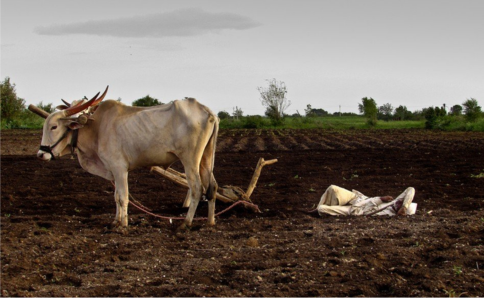Dr. M. Suresh Babu, President, Praja Science Vedika
The National Crime Records Bureau’s (NCRB) reports on suicides and crimes in India for the year 2022. These trends include increases in suicides, crimes against Scheduled Castes and Scheduled Tribes, crimes against women and children, offenses against senior citizens, animal attacks, economic offenses, crimes against foreigners, and state-related offenses. The NCRB’s comprehensive reporting plays a crucial role in understanding the state of crime in the country and developing strategies to address emerging challenges. Over 1.7 lakh suicides were reported in 2022. Nearly one-third of the suicides were among daily wage earners, agricultural labourers, and farmers. Maharashtra reported the highest number of suicides, followed by Tamil Nadu, Madhya Pradesh, Karnataka, Kerala, and Telangana. The most common causes were “family problems” and “illness,” accounting for almost half of all suicides. Other significant causes included “drug abuse,” “alcohol addiction,” and “marriage-related issues,” with dowry-related issues being prominent among women. In addition to daily wage earners and agricultural workers, self-employed or salaried professionals accounted for 9.6% of suicides. Unemployed persons comprised 9.2%, and over 12,000 suicides were reported among students. Some states and Union Territories reported zero suicides among farmers/cultivators and agricultural labourers. Among approximately 48,000 women who died by suicide, over 52% were homemakers, followed by students and daily wage earners. Dowry-related issues were cited as a significant cause under “marriage-related issues.” Overall increase has been witnessed in crimes and atrocities against SC/ST persons. Rajasthan, Madhya Pradesh, Chhattisgarh, and Telangana saw an increase in such cases. Mizoram reported cases of atrocities against SC and ST people. Madhya Pradesh and Rajasthan continued to be among the top states with high incidents of crimes against SC/ST individuals. A marginal increase in cases, with a notable 25% rise in cases registered under the Unlawful Activities Prevention Act (UAPA). Sedition cases saw a decline, possibly influenced by the Supreme Court’s decision in May 2022. Seizure of fake Indian currency notes (FICN) worth over Rs.342 crore in 2022. FICN worth Rs. 244 crore were copies of the RS. 2,000 currency note. These reports provide valuable insights into the complex issues of suicides and crimes in India, highlighting the need for targeted interventions and policies to address the underlying causes and protect vulnerable populations.
Also read: Unemployment rate hits six year low
Suicides among Farmers and Daily-Wage Labourers:
• The report indicates that 154 farmers and daily-wage labourers die by suicide in India daily. The number increased from 144 in 2021 to 154 in 2022.
Causes of Suicides:
• The main reasons cited for these suicides were “family problems” and “illness.” Family problems, marriage-related issues, and illness collectively accounted for 54.9% of the total suicides in the country.
Geographical Distribution:
• Maharashtra reported the highest number of farmer suicides, followed by Karnataka, Andhra Pradesh, Tamil Nadu, and Madhya Pradesh.
Overall Suicide Statistics:
• The total number of suicides in the country was reported as 1,70,924 in 2022, showing an increase from 1,64,033 in 2021. There was approximately a 4% increase in overall suicides compared to the previous year.
This data underscores the critical issue of suicides among farmers and daily-wage labourers in India, with family problems and illness being significant contributing factors. The geographical distribution of these suicides also sheds light on the regions where this problem is particularly acute. Efforts to address the root causes of these suicides and provide support to vulnerable populations are crucial in mitigating this distressing trend.
Also read: Deepfake Potential threat to Civil Society
Multi-faceted approach
Addressing suicides and farmer distress in India requires a comprehensive and multi-faceted approach involving various stakeholders, including government bodies, non-governmental organizations (NGOs), communities, and mental health professionals.
Government should implement nationwide mental health awareness campaigns to reduce the stigma associated with mental health issues. Train healthcare professionals, community leaders, and volunteers in rural areas to identify signs of mental health issues and provide support.
Government should introduce and implement agricultural reforms that address issues such as access to credit, fair pricing, and crop insurance and provide financial literacy programs to help farmers manage their finances more effectively. It should ensure timely disbursal of subsidies and financial aid to farmers in distress. Promote and support diversification of income sources by encouraging alternative livelihoods and income-generating activities. Introduce training programs for farmers to acquire new skills that can be applied both in agriculture and other industries. Government should formulate and implement policies that prioritize farmer welfare and strengthen social safety nets, including insurance and support mechanisms for farmers during crop failures or financial crises. Foster collaborations between government agencies, NGOs, private sector, and local communities to pool resources and expertise. Engage with academic institutions and research organizations to develop evidence-based strategies. Implementing these strategies requires a concerted effort from various stakeholders and a sustained commitment to addressing the complex challenges faced by farmers in India. Additionally, continuous monitoring and evaluation are essential to assess the impact of these interventions and make necessary adjustments.
Also read: Scope and Potentiality of Naturopathy




